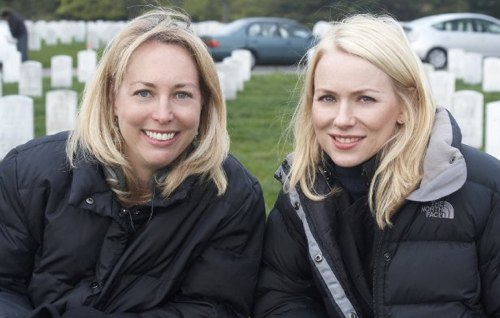Naomi Watts on Fair Game, Short Attention Spans and How You Get to Know a Spy
To the extent you could know Valerie as an ex-CIA operative, how much did you really want to know her?
I did. I really wanted to know her. There were things in the script that I wrestled with, like [how] she did handle it so well. She never lost her marbles. There's that scene where she talking about training camp -- "I never broke. I was the only one. They can't break me." And I couldn't quite get my head around that, because I'm the person who A) would avoid the fight at all costs, and B) if I had to do it, I would fall to pieces.
You would?
I think so. You never know when you're in that situation. You may be just totally driven.
Because I look at the challenges you've taken on, and the risks you've taken as an actor -- even in something like this, as you just said. You're playing someone who's alive. It seems like you've never wanted for courage.
Yeah, I mean, it's courageous, it's risky. But to me it's totally different. We have our comfort zones. And this wasn't a "comfortable" thing to do; it was very scary. Taking on the White House? That's a different kind of courage in my mind.
The film has some very political overtones, even activist overtones, but it never feels like Valerie is an especially political character -- even as she's politicized by others. How did you want to handle that dynamic?
I think the story that drives the film is the marriage and how that survived -- great conflict, great ups and downs, very nearly coming to an end. That's what spoke to me: How a relationship survives under such duress. We all know a relationship is hard no matter what, but put that into the mix, and how do you cope with that? And the fact that she spent 20 years living in virtual secrecy -- to then go forward against every instinct she has and speak in public in honor of what she felt she should do for her country. But really it was driven by her husband. To me, that was a total act of love.
Why did Valerie come around all of the sudden? Was it to save her marriage?
I think it was that. And basically the information being give to us about why we were going to war -- those 16 words that were told to us in the State of the Union address were contrary to the information Joe learned when he was sent to Niger.
Was this a story you followed when it was occurring?
It was something I was familiar with. I looking it up on the Internet every day, but when you turn on CNN and there's new information all the time... and then, after the Libby trial, it sort of disappeared. But when I got the e-mail from Jez Butterworth -- the screenwriter, who's my friend -- that he had written an adaptation of her story, of her book, I was very intrigued. I was very much reminded of it -- but certainly [due] to the level of detail that's in the script.
We have such short attention spans -- Americans do, anyway.
The world! Everything happens so quickly, then we're done with it, and we want something else. We crave more information about something else. But what stands out and resonates for me is that this story is always worth telling -- whether we're moving on from the Bush Administration or not. It's two people. Two individuals took on a great fight, because their truth had to be told -- what they knew. And they stood by it.
[Top photo by Jean Baptiste Lacroix/FilmMagic; page two photo: Summit Entertainment]
Pages: 1 2


Comments
Watts planted her career along with that tree
in "Israel": bye, bye, Betty!